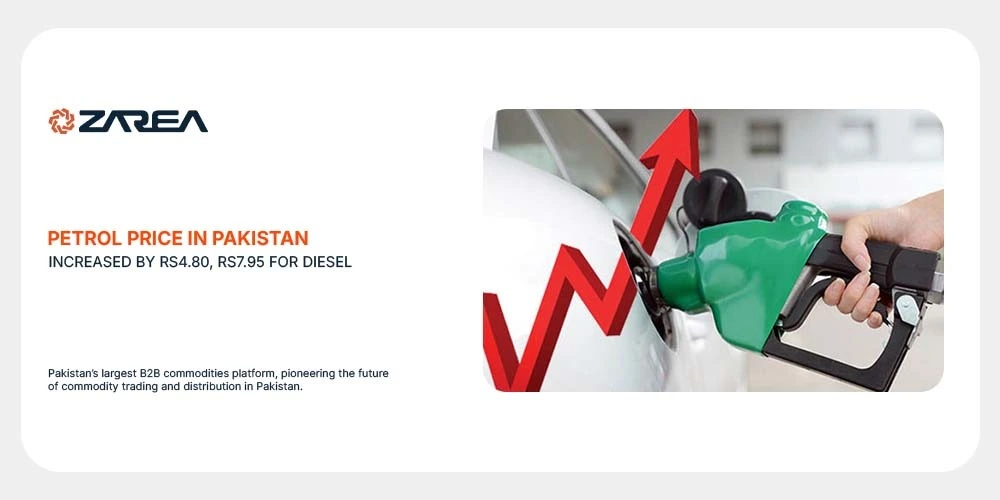Another Increased in Petrol Price in Pakistan:
Pakistanis once again woke up to high fuel prices especially for gasoline and diesel. When the government announced a significant increase in the petrol price in Pakistan. Beginning on September 16, the gasoline price decreased to Rs2.18 per litre in Pakistan. Meanwhile the price of diesel has also decreased to Rs0.21 per litre.
The Finance Division formally announced the new tariffs late on Sunday evening. The Finance Division also claimed that they are based on suggestions from the Oil and Gas Regulatory Authority (OGRA) and other relevant ministries.
What Are the New Prices?
Here is a brief overview of the recently implemented fuel prices:
- Petrol used to cost Rs266.79 per liter, but now it costs RS264.61.
- The price per litre of High-Speed Diesel (HSD) was raised to RS272.98 from RS272.77.
For the majority of people who depend on fuel for small company operations, delivery work, or commuting, it is a significant jump.
Fuel Prices in Pakistan – July 2025
| Fuel Type | Old Price | New Price | Difference |
| Petrol (Super) | 266.79 PKR | 264.61 PKR | 2.18 |
| High Speed Diesel | 272.98 PKR | 272.77 PKR | 0.21 |
| Light Speed Diesel | 155.81 PKR | 159.76 PKR | 3.95 |
| Kerosene Oil | 171.65 PKR | 176.81 PKR | 5.16 |
Why Did the Price of Fuel Increase?
There are a few key reasons why we’re seeing this uptick in prices:
Global Market Pressure
The price of oil has been increasing on the global market. The majority of Pakistan’s fuel is imported, thus any increase in global prices has an immediate impact on our gas prices.
Exchange Rate Factor
The strength—or weakness—of the Pakistani rupee also plays a role. A decline in the rupee raises the cost of imports, which drives up prices for consumers even in the case of steady oil prices.
Upcoming Taxes and Levies
From July 1, the government plans to implement new taxes, including:
- A Rs77 per litre petroleum levy
- A Rs5 per litre carbon levy on furnace oil
- And an additional Rs2.5 per litre tax on petrol and diesel
This is part of Pakistan’s ongoing commitments under its loan program with the International Monetary Fund (IMF).
Public Reactions – More Burden for the Average Pakistani:
As anticipated, the public’s response has not been favorable. People already have to contend with rising utility rates, food prices, and inflation. An increase in gas costs feels like yet another hit to household spending plans.
“We plan everything around fuel costs—commute, groceries, deliveries. Every time prices go up, our plans fall apart,”
(Said a rideshare driver in Islamabad)
Transporters and business owners are also concerned. Many claim that they will have to increase the cost of their products or flights, which will have an impact on practically every aspect of everyday life.
The Economic Consequences of the Bigger Picture:
All other costs rise in tandem with the price of fuel. Food, goods, and services become more expensive as transportation expenses increase. A new wave of inflation, which the government has been working hard to curb, could result from this.
The State Bank of Pakistan is already struggling to strike a balance between economic expansion and inflation control. Their job is made more difficult by these new fuel prices.
Government’s Justification on Petrol Price In Pakistan:
Government officials argue that the adjustments are necessary and driven by international trends. They also highlight the nation’s financial commitments, especially those to the IMF. Meanwhile they call for structural changes, including adjustments to fuel prices.
The Finance Division claimed that these price increases were a component of initiatives to guarantee long-term sustainability. They believed in lowering the budget deficit and stabilizing the economy.
What Takes Place Next?
Unfortunately, this may not be the last increase we see. Fuel prices are likely to increase once more in early July due to new levies that go into force next month.
The petrol price in Pakistan is expected to stay unstable and largely on the higher side unless there is a substantial decline in the price of oil globally or a big improvement in the strength of the currency.
Visit to Zarea to view product listings, current pricing, and place your bulk purchase right now!
Final Thoughts:
The latest increase in the prices of gasoline and diesel has made matters worse. As we know, household earnings are already squeezed these days. On the other hand the government’s response was that these policies are crucial to the country’s economic well-being. So, many people see them as just lowering everyday requirements.
As always, fuel prices are about more than just what we pay at the pump—they impact everything from bread to bus fares. The next round of price adjustments and taxes is expected to hit? All eyes will be on July from now!
FAQ’s:
How much is 1 liter of petrol in Pakistan?
The current price of gasoline and diesel in Pakistan. The current and most recent prices for petrol, high-speed diesel, and light-speed diesel in Pakistan are Rs. 266.79/Ltr, Rs. 272.98/Ltr, and Rs. 155.81/Ltr, respectively.
How to calculate fuel cost?
The distance driven, the vehicle’s fuel efficiency (miles per gallon or kilometers per liter), and the current gasoline price are all necessary to determine the cost of fuel. (Distance / Fuel Efficiency) * Fuel Price is the formula.
In which country is petrol the cheapest?
At approximately $0.029) per liter, Iran continues to lead the globe in providing its citizens with the cheapest gasoline. Low production costs are made possible by the nation’s enormous oil reserves, and the government provides significant fuel subsidies to keep the economy stable for its people.
What is the difference between 93 and 95 petrol?
According to Sasol, a fuel with an octane rating of 93 or 95 will provide you with greater mileage in your car than one with a rating of 95.
What is petrol in English?
The petrochemical product known as gasoline (North American English) or petrol (Commonwealth English) is a clear, yellowish, and flammable liquid that is typically used as fuel for internal combustion engines that are ignited by sparks.



































2 Comments